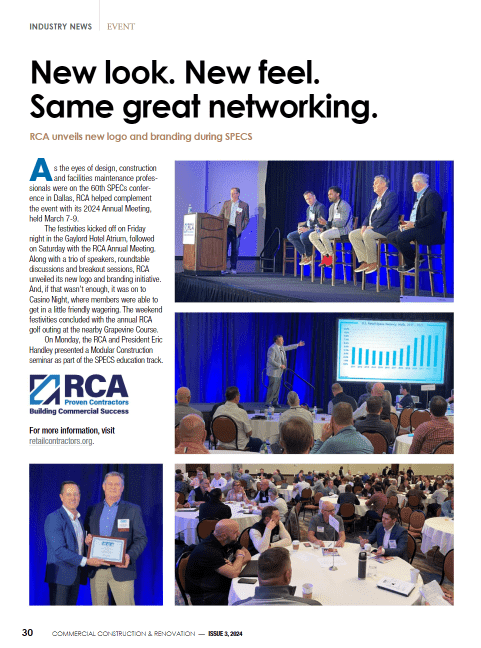A modern focus for business negotiators that addresses the evolving nature of B2B transactions
The business landscape has changed dramatically over the last many years and months. Several megatrends continue to progress: globalization, technological disruption, instant information exchange, as well as customized solutions versus commoditized inputs.
These have led to new types of business transactions. Long-term agreements, exclusivity, strategic relationships, joint ventures, and partnerships have grown versus old-style competitive price bidding. Yet many of us learned negotiating based on rules and tips that are no longer suited for the current environment.
The one thing that hasn’t changed is that all negotiations involve conflict. Dealing with conflict in a creative way is the breakthrough to negotiating success. Fear and avoidance of conflict lead to poorly negotiated agreements and missed opportunities.
We need to realize that in a more complex, faster-changing business world negotiation is now more important than ever. It’s time for an upgrade and a more sophisticated negotiating approach.
The modern focus for business negotiators has to address the evolving nature of business-to-business transactions. We see this in the business world as job titles are changing from salesperson to relationship manager and from buyer or purchasing agent to vendor relations manager. While advice like “don’t split the difference” and “don’t concede first” will always be a necessary part of a negotiator’s toolkit, it misses the point in a relationship setting.
All negotiations are not the same.
We developed a classification tool, the “Mobus Negotiating Continuum” with three major regions: Bargaining, Creative Deal Making, and Relationship Building. Understanding the type of negotiation — and where it lies on the continuum — will help you use the appropriate strategies and tactics.
The first region of the continuum, Bargaining, is the domain of “The Gamesman.” Buying and selling of true commodities (lots of options for the buyer) or one-off sales or purchases are typical examples. Here, like in the game of poker, a certain amount of gamesmanship, bluffing, and misdirection goes on. Bargaining can be best thought of as a zero-sum contest, typically over one main issue like price, where anything you win comes out of my pocket and vice versa. Bargaining negotiations center around power or leverage and the side that understands and best uses their leverage usually comes out on top. What most of us fail to appreciate is that we almost always have more leverage than we realize. To protect and defend our interests, we need to recognize the tactics used against us by aggressive bargainers and deploy countermeasures. We can bring creativity to the table by using key bargaining strategies for planning, discovery, leverage building, target setting, and making and winning concessions
The next stop on the continuum is Creative Deal Making. This is where “The Trader” flourishes. When bargaining alone won’t get the deal — or when possible but perhaps unseen synergies exist between the two sides — the nature of the deal might be expanded to the benefit of both. The trader works to discover concessions they can afford to make that are highly valued by the other side while getting back in return something of even higher value. Traders create value by expanding the pie so that each side gets a bigger slice. While there’s still conflict between the sides there’s also a sense of collaboration as they work together to hammer out a mutually beneficial solution. This opportunity, for a bigger and better deal, is lost if both sides are stuck in the bargaining model.
The final stop on the continuum is Relationship Building, where we find “The Partner.” When good business relationships work they can be so important that keeping the relationship healthy may be the ultimate goal. Negotiating in this realm takes on a new perspective, where looking out for the interest of both yourself and your counterpart is equally essential. A key feature here is that relationships entail many ongoing negotiations. Over time, things can go wrong. The Partner uses different strategies and tactics, such as vigilant monitoring and rigorous communication to make sure things continue to work out as originally envisioned. It’s all too easy to hope for the best once the contract is signed. At some point, the deal we get might not be the deal we negotiated. Sometimes, the costly mistake we make is to negotiate in the relationship mode when, in reality, the other side keeps pushing a hard bargain and we might be better off going back to the bargaining model.
Conflict can grow to a better overall agreement.
Most people dread negotiation because you can’t escape the fact that, at every level, conflict is present. After all, if you want something and I want something else, that’s conflict. We’ve been conditioned to avoid conflict and we’re uncomfortable around it. Modern society and the need or desire for getting along with others has taken the tolerance for conflict out of us. We encourage you to look at it from a different angle. That conflict carries with it the seed for a better overall agreement. Not only better than what you might think you want for yourself but also better for your counterpart as well. Rather than shrink or shy away from conflict, our advice is to embrace the inherent conflict and allow that conflict to spark ideas that lead to well-crafted, mutually beneficial agreements.
It’s our belief and observation that agreement-making is one of the most important skills anyone in business can possess. Skillful negotiating makes people more successful on the job, more valuable as employees or team members and leaders. It makes our jobs easier and our lives and the lives of those we work and deal with run smoother and better.
With the fast-paced changes occurring in today’s world, including disruptions of all kinds such as new innovations, the way we do things is irreversibly impacted. Computers killed typewriters, digital cameras changed the face of photography, and cell phone technology forever changed, not only the way we communicate but how we conduct business. Negotiating will be more important than ever. Existing agreements may no longer be workable and will need to be re-negotiated. Resolutions to problems, compromises, and new, more creative deals need to be worked out.
Everything’s affected in every industry. Professionals with the skills to negotiate creative deals, find workable solutions, and rebuild relationships are more in need than ever. To get by and prosper in the current and future, massively disrupted business world — we all need new and innovative solutions — and the skills to create them
Bill Sanders is CEO of Mobus Creative Negotiating, a firm founded by the late Frank Mobus. Mobus’s nationally recognized experts provide public seminars and private, in-house corporate training, coaching, and consulting to Fortune 500 companies. He is the author of Creative Conflict: A Practical Guide for Business Negotiators (Harvard Business Review Press, June 2021).







 The 2024 virtual Men’s Round Table will be held Q4, 2024, date TBD.
The 2024 virtual Men’s Round Table will be held Q4, 2024, date TBD.











